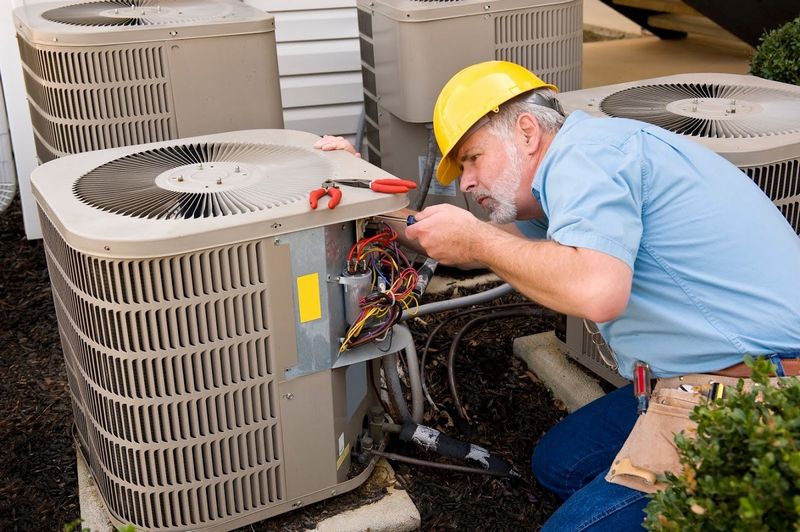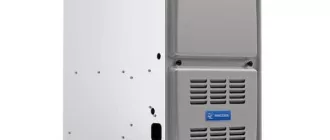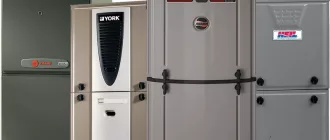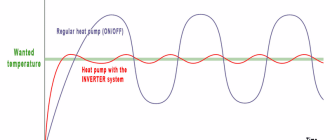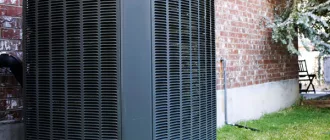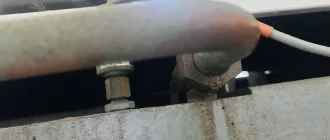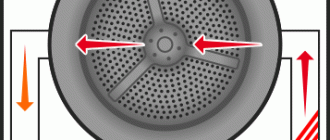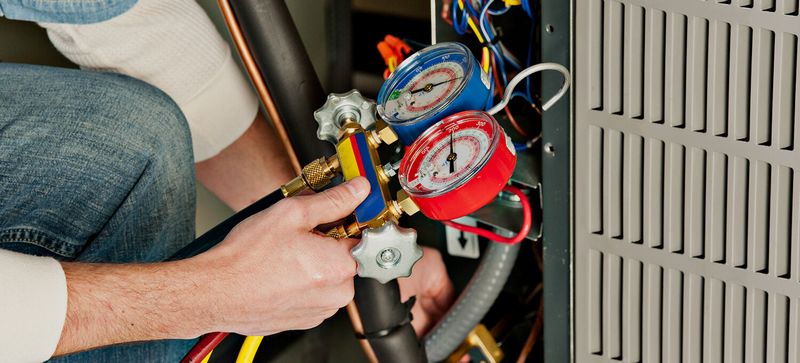
Four Issues to Avoid in Your Columbus HVAC System
When it comes to your HVAC system, you want to ensure that it is running smoothly and efficiently all year round. However, there are four common issues that homeowners often encounter. By being aware of these problems, you can take the necessary steps to avoid them and keep your HVAC system in optimal condition.
1. Poor Airflow: One of the most common issues with HVAC systems is poor airflow. This can be caused by clogged ducts, dirty filters, or malfunctioning fans. Regularly checking and cleaning your filters, as well as having your ducts inspected and cleaned by a professional, can help prevent this issue.
2. Thermostat Problems: Another common issue is thermostat problems. This can include inaccurate temperature readings or a thermostat that doesn’t function properly. To avoid this issue, it’s important to have your thermostat calibrated and inspected regularly by a professional HVAC technician.
3. Refrigerant Leaks: Refrigerant leaks can cause your HVAC system to lose efficiency and can even lead to a complete breakdown if not addressed. If you notice a decrease in cooling or heating performance, it’s essential to have a professional HVAC technician inspect your system for any refrigerant leaks and repair them promptly.
4. Ignition or Pilot Control Problems: If your HVAC system is not igniting or is experiencing issues with the pilot control, it could lead to a lack of heat or hot water in your home. Regular maintenance and inspections can help identify and resolve any ignition or pilot control problems before they become major issues.
By being proactive in addressing these common HVAC issues, you can ensure that your system operates efficiently, saving you money on energy bills and extending its lifespan. Don’t wait until these problems become major headaches—contact a reliable HVAC technician in Columbus today to schedule regular maintenance and inspections for your HVAC system.
HVAC System Maintenance Mistakes
Maintaining your HVAC system in Columbus is essential for ensuring optimal performance and prolonging its lifespan. However, many homeowners make common mistakes that can lead to costly repairs and inefficient operation. By avoiding these four key issues, you can keep your HVAC system running smoothly and efficiently for years to come.
1. Neglecting Regular Maintenance: One of the biggest mistakes homeowners make is neglecting regular HVAC system maintenance. It’s important to have your system inspected and tuned up at least once a year by a professional technician. This will help identify any potential issues before they become major problems.
2. Ignoring Air Filter Replacement: Another common mistake is ignoring the need to replace your HVAC system’s air filters regularly. Clogged or dirty air filters can restrict airflow, reduce efficiency, and even cause damage to the system. Make sure to check and replace your filters every three to six months to ensure proper airflow and maintain optimal performance.
3. Overworking the System: Overworking your HVAC system by setting the temperature too high or too low can put unnecessary strain on the system and increase your energy bills. Set your thermostat to a comfortable temperature and avoid drastically adjusting it throughout the day. Consider using a programmable thermostat to automatically adjust the temperature based on your schedule.
4. DIY Repairs: While DIY projects can be rewarding, attempting to repair or maintain your HVAC system without the necessary knowledge and expertise can lead to costly mistakes. It’s best to leave complex repairs and maintenance tasks to trained professionals who have the skills and experience to properly handle the job.
By avoiding these common HVAC system maintenance mistakes, you can ensure your Columbus HVAC system operates efficiently, saves energy, and provides reliable comfort for you and your family.
Impact of Dirty Air Filters
Avoid air quality issues and HVAC system breakdowns in Columbus by regularly changing your air filters. Dirty air filters can greatly affect the performance and efficiency of your heating and cooling system, leading to a range of problems.
When air filters become clogged with dust, dirt, and other debris, it restricts the airflow within your HVAC system. This puts a strain on the system, causing it to work harder and use more energy to maintain the desired temperature.
Here are some key issues that can arise from dirty air filters:
1. Reduced Air Quality: Dirty filters can’t effectively trap allergens, dust, and other pollutants, leading to poor indoor air quality. This puts you and your family at risk of respiratory problems, allergies, and other health issues.
2. Increased Energy Consumption: A clogged air filter makes your HVAC system work harder to push air through the system, resulting in increased energy consumption. This can cause your energy bills to rise significantly.
3. Decreased Efficiency: The buildup of dirt and debris on the filters restricts airflow, reducing the system’s efficiency. Your HVAC system will have to run longer to achieve the desired temperature, leading to more wear and tear and potentially shortening its lifespan.
4. Frozen Evaporator Coil: Restricted airflow can cause the evaporator coil to freeze up, hindering the cooling process. This can result in reduced cooling capacity and inefficient operation.
To avoid these issues, it’s important to check and change your air filters regularly. Consult your HVAC manufacturer’s recommendations for the recommended frequency of filter changes. By keeping your air filters clean, you can maintain optimal airflow, improve energy efficiency, and ensure better indoor air quality in your Columbus home.
Importance of Proper Insulation
Proper insulation is crucial for an efficient HVAC system in Columbus. Without it, you may encounter four major issues that can be costly and inconvenient to resolve:
1. Energy Loss: Inadequate insulation can result in significant energy loss for your HVAC system. This means that your heating and cooling equipment will have to work harder and consume more energy to maintain the desired temperature in your home, leading to higher utility bills.
2. Uneven Temperatures: Improper insulation can cause uneven temperatures throughout your home. Cold or hot spots may develop, making it uncomfortable to spend time in certain areas of your house. This can also result in wasted energy as you adjust the thermostat to compensate for these temperature differences.
3. Increased Wear and Tear: When your HVAC system has to work harder to compensate for poor insulation, it can lead to increased wear and tear on the equipment. This can cause premature breakdowns and lower the lifespan of your system, leading to costly repairs and replacements.
4. Reduced Indoor Air Quality: Inadequate insulation can also allow outside pollutants and allergens to enter your home, affecting the indoor air quality. This can lead to respiratory issues, allergies, and other health problems for you and your family members.
To avoid these issues, it is crucial to ensure your HVAC system is properly insulated. Hiring a professional HVAC contractor in Columbus can help you assess your insulation needs and provide you with the best solutions to improve your system’s efficiency and performance.
Common Thermostat Problems
When it comes to your Columbus HVAC system, the thermostat is a crucial component. However, there are four common thermostat problems that you should avoid to ensure the smooth functioning of your system:
- Incorrect temperature readings: A faulty thermostat can display incorrect temperature readings, leading to an inefficient cooling or heating system. It is important to regularly calibrate your thermostat to ensure accurate temperature control.
- Short cycling: Short cycling occurs when your HVAC system turns on and off frequently. This can be caused by a thermostat that is improperly located or wired. Ensuring that your thermostat is installed correctly can prevent this issue and improve energy efficiency.
- Faulty programming: Many modern thermostats come with programmable features, allowing you to set different temperature settings for different times of the day. However, if programmed incorrectly, your HVAC system may not operate efficiently. It is important to review and update your thermostat’s programming regularly.
- Power supply issues: A malfunctioning thermostat may have power supply issues, causing it to lose connection with your HVAC system. This can result in a complete failure of your heating or cooling system. Checking the power supply to your thermostat and ensuring proper connections can help avoid this problem.
By being aware of these common thermostat issues and taking proactive measures, you can ensure that your HVAC system in Columbus operates smoothly and efficiently, providing you with optimal comfort all year round.
The Role of Ductwork in HVAC Systems
In the Columbus HVAC system, the ductwork plays a crucial role in maintaining proper airflow and delivering conditioned air to every room in your home or office. While many homeowners tend to overlook the importance of ductwork, it is essential to understand its significance in the overall functioning of the HVAC system.
Ductwork is responsible for distributing heated or cooled air from the HVAC system throughout the building. It acts as a pathway, allowing air to flow freely and evenly to different areas. Without proper and well-maintained ductwork, the efficiency of your HVAC system can be significantly compromised.
There are several reasons why you should avoid neglecting your ductwork in Columbus HVAC systems. Firstly, ductwork that is poorly designed or installed can lead to air leaks. These leaks can result in a loss of conditioned air, causing your HVAC system to work harder and consume more energy. By regularly inspecting and repairing any leaks in your ductwork, you can prevent energy wastage and lower your utility bills.
Another reason to prioritize ductwork maintenance is to ensure proper air quality. Over time, dust, dirt, allergens, and other contaminants can accumulate in the ductwork. If left unaddressed, these pollutants can be circulated throughout the building, potentially leading to respiratory issues and allergies. By regularly cleaning and maintaining your ductwork, you can improve indoor air quality and create a healthier living or working environment.
Furthermore, inadequate insulation of ductwork can be a common problem in HVAC systems. Insufficient insulation can lead to the loss of heated or cooled air, resulting in temperature inconsistencies and discomfort in different areas of the building. By properly insulating your ductwork, you can ensure consistent temperature distribution and enhance the overall comfort of your space.
In summary, the ductwork in Columbus HVAC systems plays a crucial role in maintaining proper airflow, energy efficiency, air quality, and comfort. By avoiding common problems such as air leaks, poor insulation, and neglecting maintenance, you can optimize the performance of your HVAC system and enjoy a comfortable and healthy indoor environment.
Common Electrical Issues
When it comes to your Columbus HVAC system, there are four common electrical issues that you should be aware of. These issues can cause major problems and inconvenience if not addressed promptly.
The first issue is faulty wiring. This can result in improper connections and can lead to electrical shorts, power surges, or even fire hazards. It is important to have a professional inspect your HVAC system’s wiring regularly to ensure it is in good condition and functioning properly.
The second issue is circuit breaker problems. If your HVAC system is constantly tripping the circuit breaker, it is a sign that there may be an electrical issue. This could be caused by an overloaded circuit or a faulty breaker. It is important to have an electrician evaluate the system to determine the cause of the problem.
Another common electrical issue is capacitor failure. The capacitors in your HVAC system help start the motors and keep them running. If the capacitors become weak or fail, it can result in your HVAC system not functioning properly or not turning on at all. Regular maintenance and inspection can help prevent capacitor failure.
The fourth common electrical issue is thermostat problems. If your thermostat is not working correctly, it can impact the overall performance of your HVAC system. This can result in inconsistent temperatures, increased energy costs, and decreased comfort. It is important to have a professional inspect and repair or replace your thermostat if needed.
By addressing these common electrical issues promptly, you can ensure that your Columbus HVAC system is running efficiently and safely. Regular maintenance and professional inspections are key to preventing these problems and ensuring the longevity of your HVAC system.
Signs of Refrigerant Leaks
A refrigerant leak in your Columbus HVAC system can cause a variety of issues. It is important to be aware of the signs so you can avoid further damage and costly repairs. Here are four common indicators of a refrigerant leak:
1. Frequent Cooling Problems: If you notice that your HVAC system is not cooling your home properly, it could be a result of a refrigerant leak. Insufficient refrigerant can cause the system to struggle to reach and maintain the desired temperature.
2. Ice Build-Up: Another sign of a refrigerant leak is the presence of ice on your HVAC system. When there is a leak, the refrigerant may not circulate properly, causing condensation to freeze, resulting in ice on the evaporator coils.
3. Hissing Sounds: If you hear a hissing sound coming from your HVAC system, it could be an indication of a refrigerant leak. The hissing noise is often caused by the refrigerant escaping through the leak and can be a warning sign of a larger problem.
4. Increased Energy Bills: A refrigerant leak can cause your HVAC system to work harder to maintain the desired temperature, resulting in higher energy bills. If you notice a significant increase in your energy costs, it is worth checking for a refrigerant leak.
If you suspect a refrigerant leak in your Columbus HVAC system, it is important to contact a professional HVAC technician to diagnose and repair the issue. Prompt action can help you avoid further damage and ensure the efficient operation of your HVAC system.
Problems with Airflow
Proper airflow is crucial for an efficient HVAC system in Columbus. However, there are four common issues that can hinder the airflow and impact the performance of your HVAC system:
- Dirty air filters: Clogged air filters restrict the airflow, making it harder for the system to circulate air effectively. Regularly replace or clean the filters to ensure proper airflow.
- Blocked vents and registers: Obstructed vents and registers prevent the air from flowing freely throughout your home. Check and clear any obstructions to improve the airflow.
- Damaged or leaky ductwork: Cracks, gaps, or poorly connected ducts can lead to air leaks, reducing the airflow and causing uneven heating or cooling. Have your ductwork inspected and repaired if necessary.
- Inadequate return airflow: Insufficient return airflow puts additional strain on your HVAC system, leading to poor performance and higher energy consumption. Ensure that your return vents are unobstructed and properly sized.
By addressing these airflow issues, you can optimize your HVAC system in Columbus, improve its efficiency, and enjoy a comfortable indoor environment all year round.
The Importance of Regular Cleaning
Regular cleaning is crucial for maintaining the optimal performance of your Columbus HVAC system. Ignoring this important task can lead to a number of issues that can affect the efficiency and lifespan of your system.
Here are four reasons why regular cleaning is essential:
- Improved Air Quality: Over time, dust, dirt, and other pollutants can accumulate in your HVAC system. Regular cleaning helps to remove these contaminants, improving the air quality in your home or office.
- Reduced Energy Consumption: A clean HVAC system operates more efficiently, consuming less energy to cool or heat your space. This not only saves you money on energy bills but also helps reduce your carbon footprint.
- Extended Lifespan: When dust and debris build up in your HVAC system, it can put unnecessary strain on the various components, leading to premature wear and tear. Regular cleaning helps prolong the lifespan of your system, saving you money on costly repairs or replacements.
- Prevention of System Breakdowns: Dirty HVAC systems are more prone to breakdowns and malfunctions. By keeping your system clean, you can reduce the chances of unexpected failures and expensive repairs.
Don’t underestimate the importance of regular cleaning for your Columbus HVAC system. It not only improves air quality but also helps reduce energy consumption, extends the lifespan of your system, and prevents costly breakdowns. Make sure to schedule regular cleaning appointments with a professional HVAC technician to keep your system running smoothly.
Preventing and Addressing Condensation Issues
Condensation is a common issue that can occur in HVAC systems in Columbus. It happens when warm air comes into contact with a cold surface, causing the moisture in the air to condense into water droplets. If not properly prevented or addressed, condensation can lead to various issues in your HVAC system.
Here are some tips to avoid condensation issues in your HVAC system:
|
1. Proper Insulation: |
Insulate your ductwork and air conditioning components to prevent cold surfaces that can cause condensation. |
|
2. Maintain Proper Ventilation: |
Ensure good airflow throughout your HVAC system by keeping vents and registers open and unobstructed. |
|
3. Control Indoor Humidity: |
Use dehumidifiers or ventilation fans to reduce excess moisture in the air, especially in areas prone to high humidity. |
|
4. Regular Maintenance: |
Schedule routine maintenance for your HVAC system to check for any issues that could lead to condensation problems. |
If you’re already experiencing condensation issues in your HVAC system, it’s important to address them promptly to prevent further damage. Some common solutions include:
|
1. Clearing Blocked Drain Pipes: |
Remove any debris or buildup that may be blocking the drain pipes and causing water to back up. |
|
2. Fixing Leaks: |
Repair any leaks in your HVAC system, such as in the ductwork or around the condensate drain pan. |
|
3. Adjusting the Thermostat: |
Make sure your thermostat is set at an appropriate temperature to prevent excessive condensation. |
By implementing these preventive measures and addressing condensation issues promptly, you can ensure optimal performance and efficiency of your Columbus HVAC system.
Avoiding Overworking Your HVAC System
When it comes to your HVAC system in Columbus, there are four common issues that can lead to overworking and potential breakdowns. By avoiding these issues, you can ensure that your HVAC system operates efficiently and effectively, saving you money on repairs and energy bills.
- Dirty filters: One of the most common causes of HVAC system overwork is dirty filters. When your filters are clogged with dust and debris, it restricts air flow, making your system work harder to maintain the desired temperature. Make sure to regularly clean or replace your filters to avoid overworking your HVAC system.
- Poor insulation: Insufficient insulation in your home can cause your HVAC system to work overtime. Without proper insulation, hot or cold air can easily escape, leading to temperature imbalances and additional strain on your system. Ensure that your home is properly insulated to prevent overworking your HVAC system.
- Thermostat issues: Incorrect thermostat settings or a malfunctioning thermostat can cause your HVAC system to work excessively. If your thermostat is not accurately detecting and regulating the temperature, it may constantly run, putting unnecessary strain on the system. Regularly check and calibrate your thermostat to avoid overworking your HVAC system.
- Lack of maintenance: Neglecting regular maintenance for your HVAC system can result in overworking and reduced performance. Routine inspections, cleaning, and servicing are essential to keep your system running smoothly. By scheduling regular maintenance with a professional HVAC technician in Columbus, you can prevent overworking and extend the lifespan of your HVAC system.
By being proactive and addressing these common issues, you can avoid overworking your HVAC system and ensure that it operates efficiently year-round. Remember to regularly clean or replace your filters, insulate your home properly, check and calibrate your thermostat, and schedule routine maintenance to keep your HVAC system in optimal condition.
Common Issues with Heat Pumps
Heat pumps are a popular choice for homeowners in Columbus due to their energy efficiency and versatility. However, like any HVAC system, heat pumps can encounter issues that can affect their performance and efficiency. By being aware of these common issues, you can avoid potential problems and ensure that your heat pump operates smoothly.
Here are four common issues with heat pumps that you should steer clear of:
1. Refrigerant Leaks: Refrigerant leaks can cause your heat pump to lose cooling capacity and efficiency. If you notice a decrease in cooling or heating performance, it’s important to have a professional inspect your heat pump for potential refrigerant leaks.
2. Frozen Coils: Frozen coils can occur when there is inadequate airflow or a refrigerant issue. This can lead to reduced heat pump efficiency and can even cause damage to the system. Regular maintenance, including cleaning or replacing air filters, can help prevent frozen coils.
3. Electrical Issues: Faulty wiring or electrical components can cause your heat pump to malfunction or not work at all. It’s important to have a qualified technician regularly inspect and maintain the electrical components of your heat pump to prevent any potential issues.
4. Defrosting Problems: Heat pumps rely on a defrost cycle to remove ice buildup from the outdoor unit. If the defrost cycle is not functioning correctly, ice can accumulate and impact the heat pump’s performance. Regular maintenance by a professional technician can help ensure that the defrost cycle is working properly.
By staying vigilant and addressing these common issues promptly, you can keep your Columbus heat pump system running efficiently and avoid costly repairs or replacements. Remember to schedule regular maintenance with a professional HVAC technician to catch any potential issues before they become major problems.
Avoiding DIY Repairs
While it may be tempting to tackle HVAC issues on your own, it’s important to understand that DIY repairs can often lead to more problems and potentially costly damages. Here are four common HVAC system issues in Columbus that are best left to the professionals:
|
1. Electrical Problems: Working with electrical components of your HVAC system requires specialized knowledge and experience. Attempting to fix electrical issues without proper training can result in serious accidents or damage to your system. |
2. Refrigerant Leaks: Refrigerant leaks not only affect the cooling efficiency of your HVAC system but can also harm the environment. Handling refrigerants and repairing leaks should be left to trained technicians who know how to safely handle and dispose of these substances. |
|
3. Airflow Problems: If you’re experiencing inadequate airflow or uneven distribution of air in your home, it’s best to leave the diagnosis and repair to professionals. They have the tools and expertise to identify the underlying cause and restore proper airflow. |
4. Complex Mechanical Repairs: From faulty motors to malfunctioning compressors, repairing complex mechanical issues requires a thorough understanding of HVAC systems. Professionals have the necessary training and equipment to accurately diagnose and fix these problems. |
By avoiding DIY repairs and relying on qualified HVAC technicians in Columbus, you can ensure that your system is properly maintained and any issues are addressed effectively. Don’t risk further damage – leave the repairs to the experts!
The Impact of Poor Ventilation
Poor ventilation in an HVAC system can have detrimental effects on both your health and the efficiency of your Columbus HVAC system. It is crucial to address this issue to avoid potential problems that may arise.
When your HVAC system lacks proper ventilation, it can lead to a buildup of moisture and stale air. This can create the ideal breeding ground for mold, mildew, and other harmful microorganisms. These can cause allergies, respiratory issues, and worsen existing health conditions for you and your family.
In addition to health concerns, poor ventilation can also have a significant impact on the efficiency of your HVAC system. Without proper airflow, your system will struggle to maintain the desired temperature in your home, leading to increased energy consumption and higher utility bills. Furthermore, inadequate ventilation can put unnecessary strain on the HVAC components, potentially shortening their lifespan.
To avoid these problems, it is essential to ensure that your Columbus HVAC system has adequate ventilation. Regularly check and clean air filters, vents, and ductwork to ensure optimal airflow. Consider installing additional exhaust fans or a ventilation system to improve air circulation. Regular maintenance and inspections by a professional HVAC technician can also help identify and address any ventilation issues promptly.
By taking proactive measures to address poor ventilation in your HVAC system, you can improve indoor air quality, enhance energy efficiency, and promote a healthier living environment for you and your loved ones.
Common Problems with Aging HVAC Systems
As your HVAC system in Columbus ages, it may develop several issues that can affect its performance and efficiency. It’s important to be aware of these problems and to take steps to avoid them. Here are four common problems to watch out for:
- Lack of proper maintenance: One of the biggest issues with aging HVAC systems is neglecting regular maintenance. Without routine inspections and cleanings, your system can accumulate dust and debris, leading to clogged filters, reduced airflow, and increased energy consumption. To avoid this problem, make sure to schedule regular maintenance with a professional HVAC technician.
- Frequent breakdowns: As your HVAC system gets older, its components may start to wear out, leading to frequent breakdowns. This can be frustrating and costly, especially during extreme weather conditions. To prevent this issue, it’s important to address any minor problems as soon as they arise and to have your system inspected regularly to catch any potential issues before they become major problems.
- Poor indoor air quality: Aging HVAC systems may struggle to effectively filter and purify the air in your home, leading to poor indoor air quality. This can result in allergies, respiratory issues, and other health problems. To improve indoor air quality, consider investing in air purifiers or upgrading to a newer, more efficient HVAC system that has better filtration capabilities.
- Reduced energy efficiency: As HVAC systems age, they tend to become less energy efficient. This means that they have to work harder to maintain the desired temperature, resulting in higher energy bills. To avoid this problem, consider upgrading to a newer, more energy-efficient HVAC system that meets modern efficiency standards. Additionally, implementing energy-saving practices, such as sealing air leaks and properly insulating your home, can also help improve energy efficiency.
By being aware of these common problems and taking proactive measures to avoid them, you can prolong the lifespan of your aging HVAC system and ensure that it continues to operate effectively and efficiently.
Q&A:
What are the common problems to avoid in my HVAC system?
Some common problems to avoid in your HVAC system include dirty filters, leaky ducts, poor insulation, and low refrigerant levels.
How often should I change my HVAC filter?
You should change your HVAC filter every 1-3 months, depending on how often your system is used and the level of dust and pollutants in your home.
What are the signs of leaky ducts in my HVAC system?
The signs of leaky ducts in your HVAC system include uneven heating or cooling, high energy bills, rooms that are difficult to keep at a comfortable temperature, and excessive dust in your home.
Why is proper insulation important for my HVAC system?
Proper insulation is important for your HVAC system because it helps to prevent heat loss or gain, allowing your system to operate more efficiently. It also helps to reduce energy waste and lower your heating and cooling bills.

